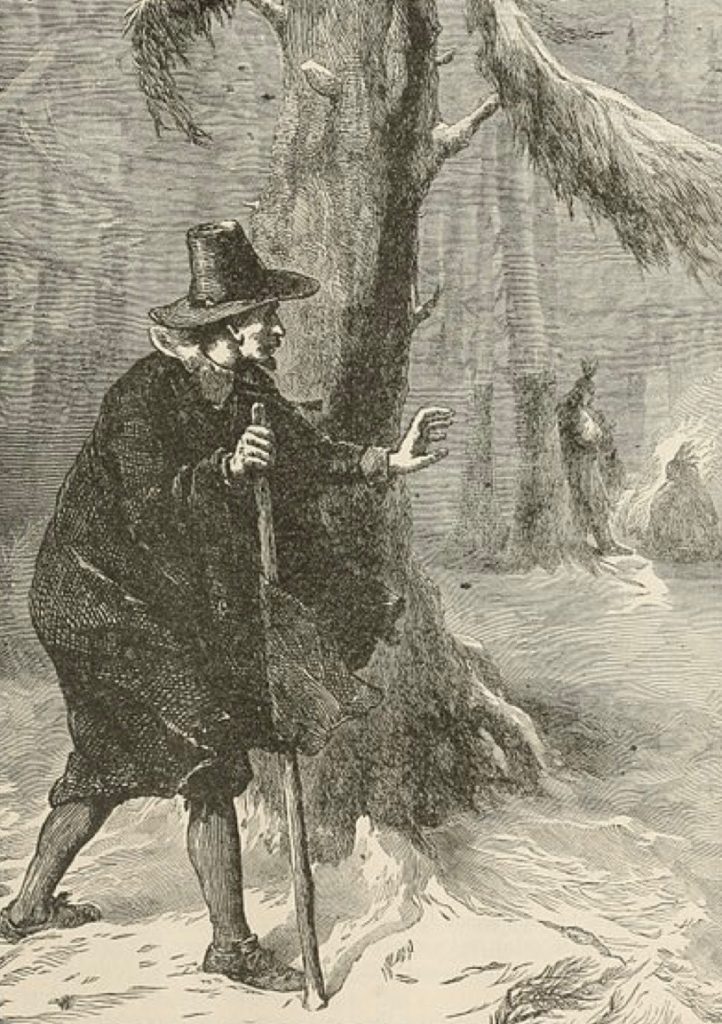The Bloudy Tenent of Persecution by Roger Williams
Roger Williams
1644
The full title was The Bloudy Tenent of Persecution, for the Cause of Conscience, Discussed in a Conference Between Truth and Peace. (London, 1644). It includes his response to a letter from Puritan leader John Cotton, Williams wrote:

The preface of the book summarizes his philosophy:
“First. That the blood of so many hundred thousand souls of protestants and papists, spilt in the wars of present and former ages, for their respective consciences, is not required nor accepted by Jesus Christ the Prince of Peace.
Secondly. Pregnant scriptures and arguments are throughout the work proposed against the doctrine of persecution for cause of conscience.
Thirdly. Satisfactory answers are given to scriptures and objections produced by Mr. Calvin, Beza, Mr. Cotton, and the ministers of the New English churches, and others former and later, tending to prove the doctrine of persecution for cause of conscience.
Fourthly. The doctrine of persecution for cause of conscience, is proved guilty of all the blood of the souls crying for vengeance under the altar.
Fifthly. All civil states, with their officers of justice, in their respective constitutions and administrations, are proved essentially civil, and therefore not judges, governors, or defenders of the spiritual, or Christian, state and worship.
Sixthly. It is the will and command of God that, since the coming of his Son the Lord Jesus, a permission of the most Paganish, Jewish, Turkish, or anti-christian consciences and worships be granted to all men in all nations and countries: and they are only to be fought against with that sword which is only, in soul matters, able to conquer: to wit, the sword of God’s Spirit, the word of God.
Seventhly. The state of the land of Israel, the kings and people thereof, in peace and war, is proved figurative and ceremonial, and no pattern nor precedent for any kingdom or civil state in the world to follow.
Eighthly. God requireth not an uniformity of religion . to be enacted and enforced in any civil state ; which en forced uniformity, sooner or later, is the greatest occasion of civil war, ravishing of conscience, persecution of Christ Jesus in his servants, and of the hypocrisy and destruction of millions of souls.
Ninthly. In holding an enforced uniformity of religion in a civil state, we must necessarily disclaim our desires and hopes of the Jews conversion to Christ.
Tenthly. An enforced uniformity of religion throughout a nation or civil state, confounds the civil and religious, denies the principles of Christianity and civility, and that Jesus Christ is come in the flesh.
Eleventhly. The permission of other consciences and worships than a state professeth, only can, according to God, procure a firm and lasting peace ; good assurance being taken, according to the wisdom of the civil state, for uniformity of civil obedience from all sorts.
Twelfthly. Lastly, true civility and Christianity may both flourish in a state or kingdom, notwithstanding the permission of divers and contrary consciences, either of Jew or Gentile. ”
Roger Williams, The Bloudy Tenent of Persecution for Cause of Conscience, ed. Samuel L. Caldwell (1644; reprint, Providence: Narragansett Club, 1867), p. 3.